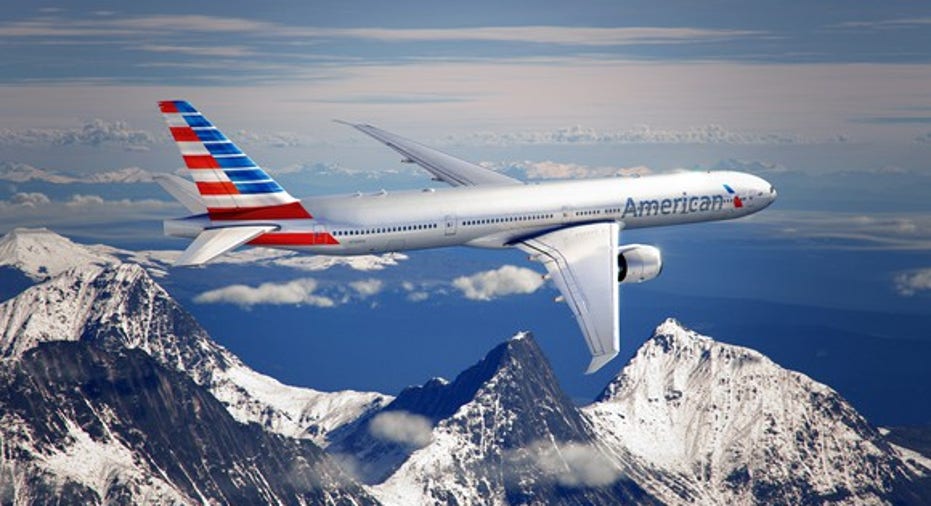American Airlines and United Airlines Start Selling Basic Economy Fares

A few years ago, Delta Air Lines (NYSE: DAL) introduced a new class of cheaper "basic economy" fares to help it compete with ultra-low cost carriers on certain routes. Last year, American Airlines (NASDAQ: AAL) and United Continental (NYSE: UAL) confirmed that they would introduce their own basic economy fares to stay competitive.
Earlier this week, American and United began selling these basic economy tickets -- but only for a handful of routes. This will allow them to see how customers react before rolling out basic economy more broadly.
The idea behind Basic Economy
Delta Air Lines launched basic economy fares to solve a particular problem. Delta was matching low fares offered by various budget carriers. Customers buying those cheap fares, typically far in advance, would get to select the best economy-class seats on the flight. Meanwhile, business travelers who booked just a week or two before the flight and paid much higher fares would often end up stuck in the middle seats.
Delta introduced basic economy fares so that business travelers could get better seats. Image source: Delta Air Lines.
Customers who buy Delta's basic economy fares aren't allowed to select seats in advance. As a result, they are likely to end up in middle seats, whereas business travelers who pay more will have a better chance at getting more desirable seat assignments. Delta's basic economy tickets also prohibit flight changes, upgrades, and standby privileges.
American Airlines and United Airlines have gone a step further. In an effort to compete even more vigorously with ultra-low cost carriers, they have removed more features from their basic economy fares.
Most notably, customers who buy basic economy fares with American or United will not be allowed to bring a full-sized carry-on bag. Only smaller "personal items" that fit beneath the seat will be permitted.
The risk for American Airlines and United Continental
In terms of competing with ultra-low cost carriers like Spirit Airlines and Frontier Airlines, the new American and United basic economy fares are still relatively attractive. After all, the ultra-low cost carriers all charge high fees for bringing a carry-on bag. Furthermore, they don't even offer free snacks or drinks.
However, both airlines' basic economy offerings are clearly worse than Delta's version of basic economy. At least Delta still includes free full-size carry-on bags with basic economy tickets. American Airlines and United Airlines thus risk reinforcing the already prevalent view that Delta is the best of the big legacy carriers.
United Airlines' basic economy fares won't include carry-on bag privileges. Image source: United Airlines.
Thus, it's a good idea for American and United to test their new basic economy fares in a few markets first rather than quickly rolling them out nationwide.
American Airlines has made basic economy fares available in 10 markets, starting March 1. This includes a mix of business markets (some of which are hub-hub routes) like Philadelphia-Dallas/Fort Worth along with leisure routes like Charlotte-Orlando.
Meanwhile, United Airlines is starting with basic economy on just seven routes, connecting Minneapolis/St. Paul to each of its domestic hubs. The United basic economy fares are available for travel beginning on April 18.
United's testing strategy seems smarter than American's approach. Minneapolis is a fortress hub for Delta. Thus, United will get to see how its basic economy product performs head-to-head with Delta's. It will also compete directly with ultra-low cost carriers in some of these markets. Additionally, United has relatively low market share on most of these routes, so it doesn't have much to lose.
By contrast, while American Airlines is also starting small, it is putting basic economy fares on high-volume routes where it is the dominant carrier. As a result, if its basic economy offering alienates customers, it could do a lot of damage in a short period of time.
American is rolling out basic economy fares in some of its top markets. Image source: American Airlines.
Are American and United commoditizing their products?
In theory, American Airlines' and United Airlines' highly restrictive basic economy fares make a lot of sense. Limiting carry-on baggage will speed up operations and encourage customers to pay a little more (often about $20 each way) to upgrade to a regular economy fare. And both carriers' basic economy fares still include more perks than tickets on any ultra-low cost carrier.
However, consumers may not see things the same way. Rather than appreciating having more choices, many consumers will either pay extra to upgrade to a traditional economy fare but feel bitter about that extra cost, or they will take the basic economy fare but have a bad experience. Either way, it's a risk to the airlines' reputations.
Of course, consumers were very resistant to bag fees less than a decade ago. Eventually, they became accepted as a fact of life. Perhaps travelers will quickly come to see carry-on bag restrictions in the same light. But if not, American Airlines and United Continental could compromise their reputations as they attempt to remain price-competitive with cheaper rivals.
10 stocks we like better than American Airlines GroupWhen investing geniuses David and Tom Gardner have a stock tip, it can pay to listen. After all, the newsletter they have run for over a decade, Motley Fool Stock Advisor, has tripled the market.*
David and Tom just revealed what they believe are the 10 best stocks for investors to buy right now... and American Airlines Group wasn't one of them! That's right -- they think these 10 stocks are even better buys.
Click here to learn about these picks!
*Stock Advisor returns as of February 6, 2017
Adam Levine-Weinberg owns shares of Delta Air Lines and Spirit Airlines. The Motley Fool recommends Spirit Airlines. The Motley Fool has a disclosure policy.



















